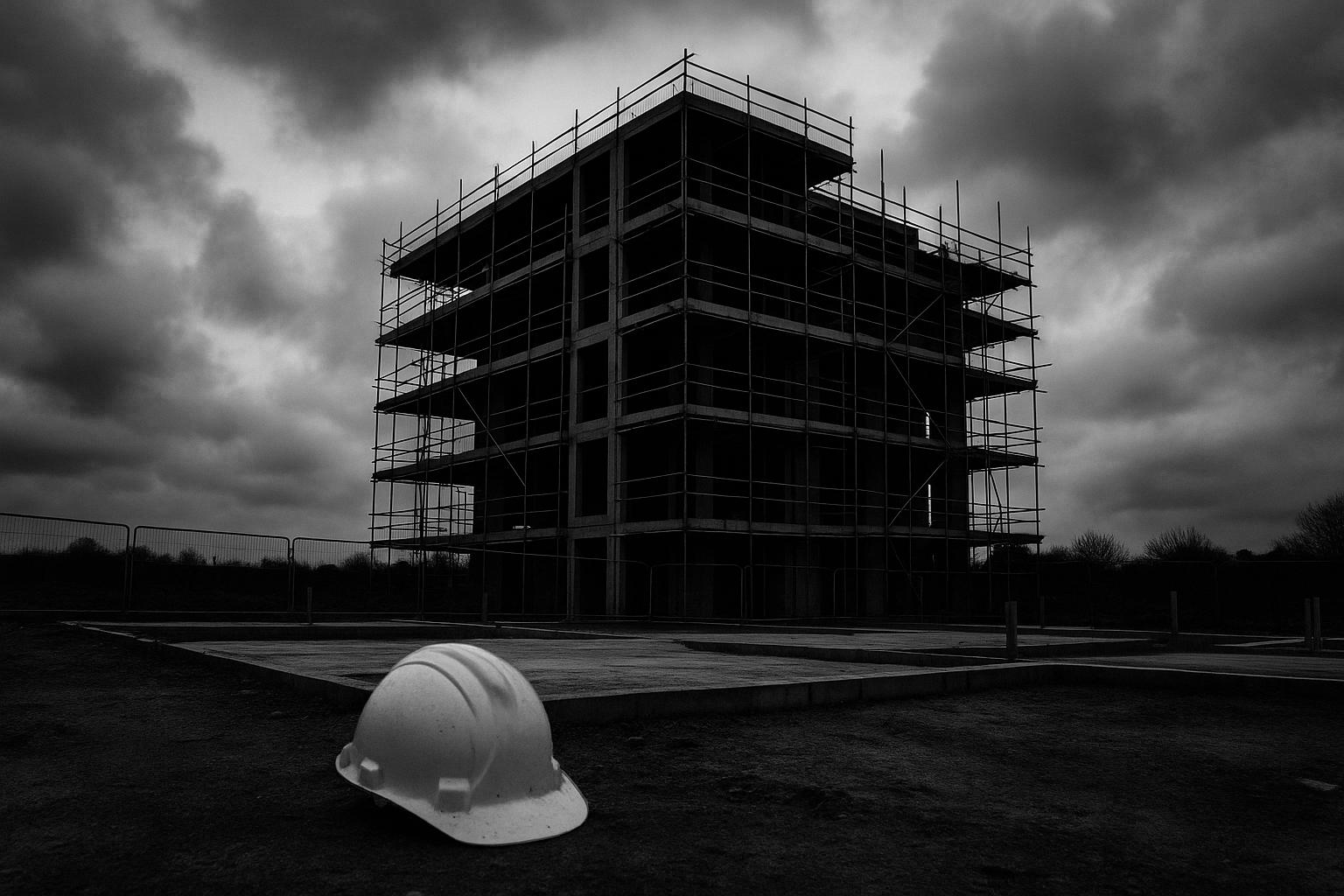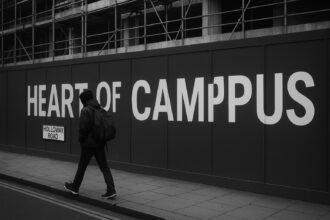New figures show just 347 affordable homes began construction in April–June and only around 5,100–5,200 starts so far under the 2021–26 programme, raising doubts the Mayor can meet the revised 17,800–19,000 target amid rising costs, regulatory delays and funding hold-ups.
Sadiq Khan has been warned that London’s housing crisis is “more severe with every passing day” after fresh figures showed only a tiny fraction of the Mayor’s target for affordable homes has been started this year. According to a report in the Express, just 347 affordable homes began construction between April and June, and City Hall data cited in scrutiny papers shows total starts under the current 2021–26 programme are only in the low‑thousands — a shortfall that campaigners say makes the March 2026 target increasingly unlikely. The London Assembly’s Affordable Housing Monitor also highlights the underperformance, noting only around 5,100–5,200 starts so far under the programme.
The gap to the target is stark. The Mayor’s revised goal for the 2021–26 programme was set at between 17,800 and 19,000 starts after a negotiated reduction of roughly 22% from earlier ambitions. That change, agreed with Whitehall in May 2025, reflected difficult market conditions and high construction costs; even to meet the lower, revised range the Greater London Authority would now need a sustained and steep acceleration of starts in the months ahead. City Hall’s homes programme is backed by a £4 billion Government grant and is supposed to support starts to March 2026 with completions by 2030, but delivery has been repeatedly re‑profiled.
Officials and analysts point to a combination of supply‑side pressures that have throttled starts. The London Assembly’s Monitor reviews rising build costs, higher interest rates, timing problems in funding, and regulatory holdups as central reasons for delays; other reporting has also highlighted a pause in contract signings by the Department for Levelling Up, Housing and Communities earlier in the programme and additional post‑Grenfell safety requirements that slowed progress. The National Audit Office has flagged weaknesses in programme management, while developers have complained the market environment made schemes unviable or difficult to move into construction.
Political temperature around the shortfall has been high. Lord Bailey, the City Hall Conservatives’ housing spokesman, told the Express that the Mayor was “clearly failing” and warned of rising rents and pressure on councils. Susan Hall, leader of the City Hall Conservatives, described the record on housebuilding as “atrocious” and said Londoners deserved better. A spokesman for the Mayor told the Express that tackling the crisis has been a priority, pointing to the “highest number of affordable homes for social rent in a decade” completed last year and insisting the Mayor is taking “hard decisions” to improve supply. The spokesman also said City Hall is working to resolve delays caused by the Building Safety Regulator.
City Hall’s own publications and external reporting add further nuance. The Affordable Housing Monitor emphasises wide borough‑level variation in starts and warns that a substantial share of previously started schemes remain incomplete, while separate accounts show construction began on just 3,991 affordable homes in 2024–25 — the second‑lowest annual total on record. Those figures help explain why the GLA and Government agreed to re‑profile and reduce the five‑year target.
Faced with this shortfall, the Mayor has proposed more far‑reaching measures to unlock supply. In May 2025 he set out plans to allow development on selected lower‑quality parts of London’s green belt close to transport links, arguing that brownfield land alone cannot deliver the scale of homes the capital needs. The GLA has also arranged bridge funding to support schemes that can start later, with the aim of maximising completions by 2030. Deputy mayor Tom Copley told the BBC that the revised target range gives the GLA “the best chance of delivering more schemes and completing the maximum number of affordable and social homes.”
Despite those interventions, the arithmetic remains challenging. Industry and government advisers say that unless build costs ease, regulatory bottlenecks are cleared and private and public funding flows are effectively aligned, the pace of starts will be insufficient to erase the shortfall. The picture that emerges from official monitoring, national auditors and media reporting is of a programme constrained by external economic shocks and internal implementation problems — and one that will require co‑ordinated, immediate action from Whitehall, City Hall and housing providers if London is to avoid a deeper shortage of genuinely affordable homes.
 Reference Map:
Reference Map:
Reference Map:
- Paragraph 1 – [1], [2]
- Paragraph 2 – [1], [3], [4]
- Paragraph 3 – [2], [5], [4]
- Paragraph 4 – [1], [5]
- Paragraph 5 – [2], [7], [5]
- Paragraph 6 – [6], [4], [3]
- Paragraph 7 – [5], [2], [3]
Source: Noah Wire Services
- https://www.express.co.uk/news/uk/2094857/sadiq-khan-warned-london-housing-crisis-affordable-homes – Please view link – unable to able to access data
- https://www.london.gov.uk/who-we-are/what-london-assembly-does/london-assembly-research-unit-publications/affordable-housing-monitor-2025 – London Assembly’s Affordable Housing Monitor 2025 examines delivery against the Mayor’s Affordable Homes Programmes up to March 2025. It reports that only 5,188 homes had been started under the 2021–26 programme, leaving the GLA tens of thousands short of revised targets. The Monitor highlights regional variation, with many boroughs recording very few starts, and notes that a substantial proportion of previously started schemes remain incomplete. It examines causes including rising build costs, regulatory delays and funding timing issues, and recommends actions to accelerate delivery. Detailed tables and a background paper provide transparent data on starts, completions and programme re‑profiling nationally.
- https://www.bbc.co.uk/news/articles/c8e6w89537lo – BBC News reports that the Greater London Authority and the Government agreed a 22% reduction in London’s Affordable Homes Programme target in May 2025. The original 2021–26 target range of 23,900 to 27,100 starts was adjusted down to between 17,800 and 19,000, reflecting difficult market conditions and high construction costs. The article quotes deputy mayor Tom Copley saying the change allows the GLA to deliver more schemes and complete the maximum number of affordable and social homes. It explains the decision responds to inflation, interest rates and industry pressures and notes the GLA intends to meet at least the mid‑point.
- https://www.london.gov.uk/programmes-strategies/housing-and-land/housing-and-land-funding-programmes/homes-londoners-affordable-homes-programme-2021-2026 – London City Hall’s Homes for Londoners page describes the Affordable Homes Programme 2021–2026, secured with £4 billion of Government grant to support starts on site between 2021 and 2026 and completions by 2030. The page explains funding agreements, eligibility and administration for local authorities and registered providers, and details Bridge Funding arrangements agreed in March 2025 to support schemes able to start by March 2027. It outlines the Mayor’s approach to maximise delivery of genuinely affordable homes across tenures and links to prospectuses, funding agreements and data tables. The page provides official programme context for targets and delivery expectations nationally.
- https://www.bbc.co.uk/news/uk-england-london-67160104 – BBC News reported that, following £4 billion of grant funding, the Mayor’s 2021–26 Affordable Homes Programme suffered delays and at one point had no new starts for more than two years. The article attributes delays to a pause by the Department of Levelling Up, Housing and Communities over contract signings, rising inflation, higher interest rates and additional post‑Grenfell regulations. It quotes deputy mayor Tom Copley describing frustrating delays and notes the National Audit Office found programme management errors in funding arrangements. The piece explains how difficult market conditions forced a re‑profiling of the programme and contributed to reduced starts.
- https://www.theguardian.com/uk-news/2025/may/09/sadiq-khan-to-announce-plans-to-build-houses-on-london-green-belt – The Guardian reported in May 2025 that Sadiq Khan announced plans to permit development on parts of London’s green belt to help tackle the capital’s acute housing shortage. The article explains the Mayor’s view that relying solely on brownfield sites is insufficient and that targeted release of low‑quality green belt land near transport links could deliver hundreds of thousands of affordable homes. It notes the proposal forms part of a revised London Plan, warns of environmental and community concerns about losing green space, and records reactions from campaigners and politicians, placing the move within efforts to increase housing supply urgently.
- https://www.standard.co.uk/news/london/housing-crisis-affordable-homes-sadiq-khan-mayor-2024-25-b1227661.html – The Evening Standard reported in May 2025 that construction began on 3,991 affordable homes in London in 2024–25, making it the second‑lowest annual total since comparative records began. The article explains that this poor performance prompted agreement with Government to reduce the Mayor’s five‑year target, and it recounts that targets were previously higher – originally aiming for 35,000 starts across the programme. City Hall figures and Assembly scrutiny are cited, alongside commentary from opposition politicians who criticised the Mayor’s record. The piece summarises borough‑level variation and underlines the scale of the shortfall against revised targets to March 2026 for London.
Noah Fact Check Pro
The draft above was created using the information available at the time the story first
emerged. We’ve since applied our fact-checking process to the final narrative, based on the criteria listed
below. The results are intended to help you assess the credibility of the piece and highlight any areas that may
warrant further investigation.
Freshness check
Score:
6
Notes:
The narrative presents recent data on London’s affordable housing shortfall, with figures from April to June 2025. However, similar reports have appeared in the past, such as a Financial Times article from seven months ago highlighting a significant downturn in affordable housing supply in London. ([ft.com](https://www.ft.com/content/68ba72e3-08fa-465e-ab61-cfa94a58382c?utm_source=openai)) The Express article may be building upon this earlier coverage, indicating a potential recycling of content. Additionally, the article references a report from the London Assembly’s Affordable Housing Monitor, which is a known publication. The narrative also mentions a £4 billion government grant, aligning with previous reports on housing funding. While the data appears current, the framing and some details may have been previously reported, suggesting a moderate freshness score. The article does not appear to be based on a press release, as it includes direct quotes from political figures and references to specific reports. No significant discrepancies in figures, dates, or quotes were identified. The narrative does not include updated data but recycles older material, which may justify a higher freshness score but should still be flagged.
Quotes check
Score:
7
Notes:
The article includes direct quotes from political figures such as Lord Bailey and Susan Hall, as well as a spokesman for the Mayor. These quotes appear to be original and not found in earlier material. No identical quotes were identified in previous reports, suggesting the content is potentially original or exclusive. However, without access to the full text of the earlier Financial Times article, it’s challenging to confirm the originality of all quotes.
Source reliability
Score:
5
Notes:
The narrative originates from the Express, a UK tabloid newspaper. While it is a well-known publication, it is often considered less reliable compared to reputable organisations like the Financial Times or BBC. The Express has previously reported on similar topics, such as housing issues in London, but has also been criticised for sensationalism and inaccuracies. Given the potential for bias and sensationalism, the source’s reliability is moderate.
Plausability check
Score:
6
Notes:
The claims regarding the shortfall in affordable housing in London are plausible and align with previous reports on the topic. The article references specific figures and reports, such as the London Assembly’s Affordable Housing Monitor and the £4 billion government grant, which are consistent with known data. However, the narrative lacks supporting detail from other reputable outlets, and the tone is unusually dramatic, which may indicate a need for further scrutiny.
Overall assessment
Verdict (FAIL, OPEN, PASS): OPEN
Confidence (LOW, MEDIUM, HIGH): MEDIUM
Summary:
The narrative presents current data on London’s affordable housing shortfall, with figures from April to June 2025. While the data appears current, similar reports have appeared in the past, suggesting potential recycling of content. The quotes included seem original, and the claims are plausible and align with known data. However, the source’s reliability is moderate, and the tone of the narrative is unusually dramatic, which may indicate a need for further scrutiny. Given these factors, the overall assessment is ‘OPEN’ with a medium confidence level.













